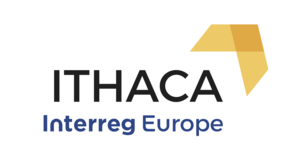Development of smart social and health care in the context of the challenges caused by the COVID 19 pandemic through technological and social innovation to counter the effects of isolation.
The aim of the workshop is to present good practices in the field of health and social care management in Małopolska, which were applied during the pandemic, taking into account the aspects of mental health.
Programme:
8th of June
The sessions will be focusing on the technological and psychological solutions supporting people in isolation during the pandemic but also in general. Some presentations will be in roadshow formulas.
Questions like:
- How did the entrepreneurs answer the demand for new technological solutions in the pandemic / lockdown / social isolation reality?
- Was the pandemic a threat or an opportunity for the small business?
- How did citizens handle the social isolation in terms of their needs?
Or
- What challenges citizens faced during the pandemic?
- What key elements inspired the solutions?
- How can barriers (including technical, financial and political) be tackled?
- What were the key success factors? Moreover, to what extent are these more widely applicable?
9th of June
Day 2 will focus on social innovations, like smart clothing technology and support for children and youth and will be a set of presentations of solutions dedicated to citizens to support them in daily activities.
Main questions of this day:
- What kind of social innovations can address the care services at the place of residence?
- How might social innovations address the needs of the special target groups? Can they be generalized, transferred or should they stay specific to the target group?
- What should be considered while designing the service / product / solution for the specific target group?
- What do you think about co-creation or service design process?
- How social innovations can affect the coordination of social and health care?
For some sessions, participants will work in small, interactive, sub-groups. Each sub-group will have a facilitator and a rapporteur drawn from the PRGA participants. All this, will lead to a varied programme!
* The PRGA is a small-scale event that will demonstrate specific digital innovations for health care and well-being developed or scaled up during the pandemic that can be demonstrated by Liverpool (telehealth), Basque Country (automizing processes & data analytics), Malopolska (tackling social isolation and mental health) and Baden-Wüttemberg (integrated care). Each will be attended by 3 stakeholders/ experts in these fields from each of 4 interested ITHACA partner regions where there is also an alignment with the policy and relevance for new projects or governance matters.
The primary purpose of the PRGAs is for visiting experts to act as an ‘assessment and feedback team” who will observe and provide structured feedback to the hosts about what they have seen and learnt at the PRGA. By drawing on their own knowledge and experience and with the benefit of a fresh eye and, with support from an independent facilitator, they will provide PRGA host regions and their stakeholders with a unique opportunity to hear an expert critique and recommendations. This can improve actions in the host region and flag up good practices for transferring elsewhere.

